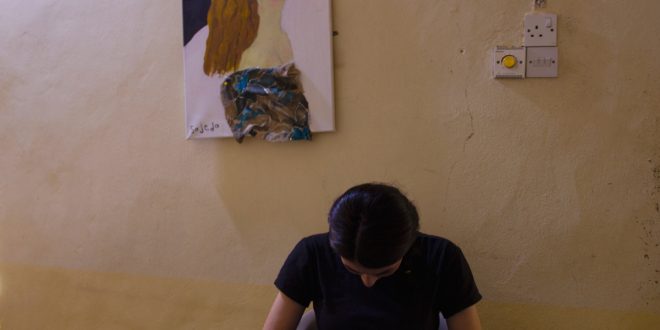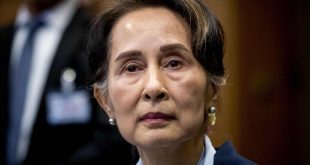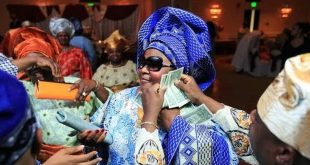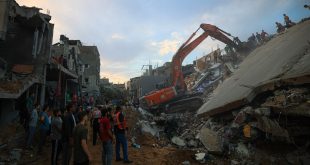Sharya, Iraq – On a warm weekday, Hilwa Ibrahim, 50, was sitting patiently alongside a few other Yazidi women in the office of the NGO Emma Organization for Human Development, in the town of Sharya, approximately 15km (9 miles) south of Duhok.
Wearing a full-body dark purple garment and sandals, and a light blue hijab, she gave a hint of a smile and walked into the room. Her tired and aged appearance was an indication of the ordeal she had survived.
“My husband was murdered by ISIL [ISIS]”, were the first words she uttered.
She remembered August 2014, when ISIL swept through northern Iraq’s Yazidi-majority district of Sinjar, where she is originally from, launching what has been described as a genocide against Iraq’s ethno-religious Yazidi minority.
At that time, Ibrahim and all her family members, along with dozens of others, were captured and taken to Tal Afar, about 50km (31 miles) east of Sinjar.
Ibrahim recounts her story, explaining how the abductees were separated by gender, with the men killed, and the women and girls forced into sexual slavery.
She was sent to what would become two years and four months of ISIL captivity, while her husband was shot dead.
“They [ISIL] did the worst things imaginable to us women”, Ibrahim told Al Jazeera, choosing not to go into the details.
“Younger boys were taken away from their parents, indoctrinated, trained to fight and forced into ISIL ranks,” she added.
That is how her son Hamadi, who would now be 23, ended up forcibly recruited. Her brother Sabry and her nephew Daham are also missing. Like many other Yazidis, she does not know whether her relatives are dead or alive.
“I haven’t got any relief. I’m still seeking justice,” Ibrahim said.
“As survivors, we don’t want to see our rights and those of our loved ones denied… We’re dying inside seeing that nothing is being done.”
Ibrahim has been living with her seven children in a modest housing unit in Sharya since 2017. Other Yazidis are surviving in camps or informal settlements, scattered across Iraq’s semi-autonomous Kurdish region.
“Nobody has helped us”, Ibrahim complained. “I really don’t know if I will get any justice one day.”
Lack of implementation
On March 1 last year, the Iraqi parliament ratified the Yazidi Survivors Law, which offers reparations to Yazidi women and other survivors of ISIL crimes, including financial compensation, rehabilitation, medical treatment, and economic opportunities. Yet, the legislation has not been fully implemented to date, nor have sufficient funds been allocated to support it.
“There’s no real will from the Iraqi government to implement the law effectively”, Bahar Ali, director and co-founder of Emma Organisation, told Al Jazeera, noting that, as Iraq’s federal budget had not yet been approved due to politicians being unable to agree on a new government, funding had not been secured.
Ali said that the only steps that had been taken so far were the appointment of the head of the Directorate for Survivors’ Affairs and the opening of a temporary office in Mosul to host this body.
“Delaying or not implementing the law properly means prolonging the trauma of survivors, and increasing their hopelessness,” Ali argued, adding that the effect is widely felt among Yazidi victims who remain cut off from jobs, educational opportunities and services.
As a women’s organisation working to help Yazidi survivors, Emma has been advocating for the prosecution of the perpetrators of the crimes. It also calls for the establishment of an international court to prosecute crimes committed by ISIL.
Sold three times
Eman Abdullah entered Emma’s office, looking calm and serious.
The 20-year-old had a toughened look in her eyes, a sign that she would be about to share details about her life’s darkest period.
Abdullah was held captive by ISIL for one year, captured in the summer of 2014.
“I was only 13 then and didn’t know such brutality could exist,” Abdullah told Al Jazeera. “An ISIL group kidnapped me with six members of my family and many others; I was put in a car’s boot – next to me was the body of a beheaded man.”
After being driven to Mosul, Abdullah says that she was kept in a building with 500 other Yazidi women, before being moved to another block. When ISIL found out that her father was a police officer, Abdullah says that she was beaten so hard that she still feels pain from her injuries.
Abdullah explains that the names of unmarried women and girls were then written on paper and drawn from a box so that they could be divided between the ISIL fighters.
“One man picked three of us. He came to the room where I was put, tied my hands with a rope on the bed and raped me,” Abdullah recounted. “That was the first time I was forcibly married to an ISIL member.”
The then teenager explains that she was enslaved for five days before being sold on the ISIL slave market to another fighter, who she stayed with for three days, before being re-sold again.
“The third ISIL man also forced me to convert to Islam,” Abdullah recalled. “I learned 101 pages of the Quran by heart so I could be released.”
Eventually, the Kidnapped Yazidi Rescue Office (KYRO) was able to free Abdullah and other family members who had been captured.
The family resided in Sharya internally displaced people (IDP) camp for seven years, and were displaced once again last June. They now live in a rented three-room house in Sharya.
Abdullah has been actively appealing to the Iraqi federal authorities, the Kurdistan Regional Government, the United Nations and the international community to bring justice for Yazidi survivors.
An estimated 7,000 Yazidi women and girls fell victim to ISIL’s campaign of abductions, rape, and enslavement, with more than 3,000 women still missing.
So far, only one member of the ISIL has been convicted with charges relating to genocide against the Yazidi minority in a criminal trial in Germany.
“It’s clear to everyone in the world what we need. And yet, tor eight years we’ve seen inaction,” Abdullah said. “We haven’t seen anything done for us victims of the genocide yet, but it has had a heavy impact on our lives as each of us has at least one family member affected.”
 Top Naija News – daily news updates in Nigeria | breaking news naija Welcome to Top Naija News, your ultimate destination for daily news updates in Nigeria. We are a dedicated news curation blog from various sources.
Top Naija News – daily news updates in Nigeria | breaking news naija Welcome to Top Naija News, your ultimate destination for daily news updates in Nigeria. We are a dedicated news curation blog from various sources.




